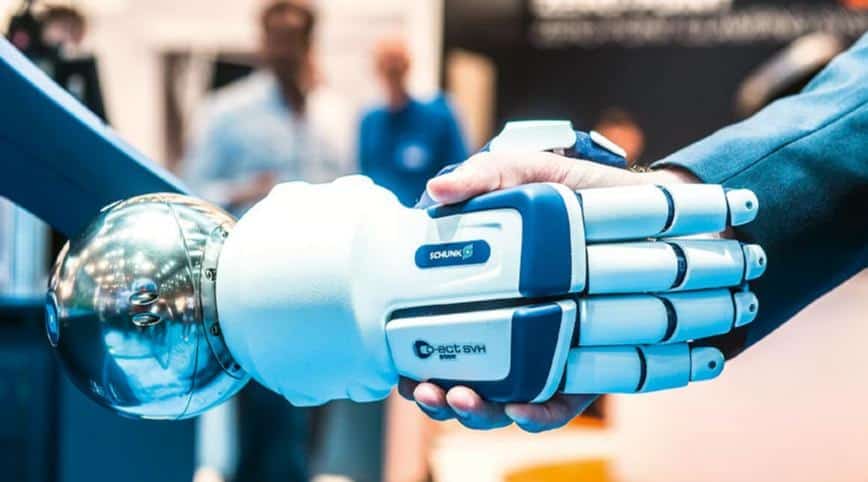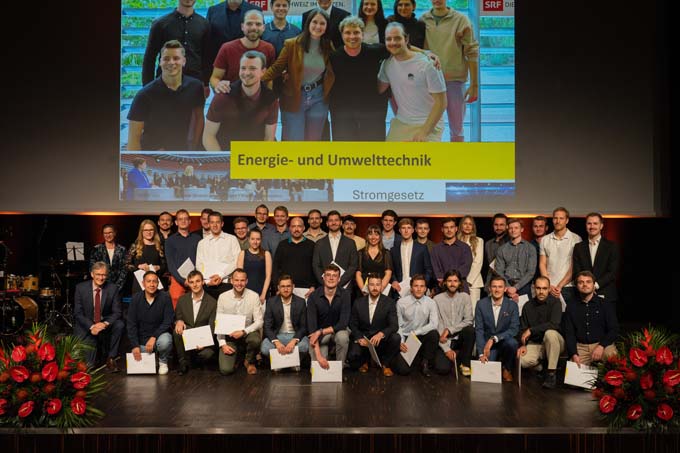50 years of analytica
This year, analytica celebrates its 50th anniversary. Since 1968, it has accompanied the development of chemical analysis and bioanalysis. What's more, it promotes the transfer of technology and know-how by bringing together instrument manufacturers and laboratory analysts, scientists and users. The trade fair will take place from 10 to 13 April 2018 in Munich.

A look back shows how fundamentally the industry has changed since 1968: When the first analytica took place, many laboratory instruments still had pointer displays. There were no computers for automatic data acquisition, no high-performance liquid chromatography (HPLC) and no coupling of gas chromatographs with mass spectrometers. Bioanalysts could not yet sequence genes. But many ideas were buzzing around. There was no question that the industry needed a meeting place to exchange ideas, drive new developments and bring itself up to date. The premiere of analytica in April 1968 was therefore a complete success.
Rapid increase in visitor numbers
5000 visitors from 24 countries and 90 exhibitors from ten European countries met in Munich from 29 April to 2 May 1968 at the first "ANALYTICA International Trade Fair for Biochemical Analysis". It was quickly decided that the new trade fair should be held every two years. Four years after its launch, the number of visitors had already risen to 9,400, and in 1978 the figure was almost 20,000. The trade fair has lost none of its appeal to this day: analytica 2016 attracted 35,002 visitors from 119 different countries.
analytica conference: Bridge between science and industry
analytica's success is also due to the fact that it has always been more than just an instrument exhibition. From the very beginning, a scientific congress has been held parallel to the trade fair, initially the "Conference on Biochemical Analysis" and, since 1994, the newly launched analytica conference, which covers all aspects from analytical chemistry and bioanalysis to clinical chemistry and diagnostics.
This year, the focus of the conference is on Big Data. Digitalization has long since found its way into analytical laboratories as well. But how can huge amounts of analytical data be processed efficiently? And which "smart" solutions optimize existing processes? The presentations in the sessions will provide a concentrated overview of new methods, processes, techniques and their concrete applications. Other sessions will focus on the use of analytical methods in food chemistry, in the detection of microplastics and in toxicology.
analytica 2018 - Topics and Trends
In its anniversary year, scientists, entrepreneurs and users from all over the world will again meet at the leading international trade fair in Munich. From 10 to 13 April 2018, the 26th analytica will open its doors to celebrate its 50th anniversary with numerous new exhibitors and inspiration for the laboratory of tomorrow. analytica is the only trade fair in the world that covers the entire depth and breadth of the laboratory value chain. In addition, a comprehensive supporting program promises direct knowledge transfer and exchange with experts. With the new Digital Transformation Forum, for example, the trade fair offers a realistic look at the future Laboratory 4.0: topics such as big data handling, bioinformatics, digital networking and effective working in the laboratory will be examined. The Digital Transformation Forum offers expert lectures and discussion forums on all days of the fair. In the Live Labs Food Analysis (Hall A3) and Materials Analysis (Hall B1) visitors can experience all common procedures or specific methods in a real laboratory environment. In the Live Labs, the work steps from sample preparation and sample measurement to analysis and evaluation of the results will be demonstrated. In the Live Lab Material Analysis, experts from industry and science will give lectures and live demonstrations on the latest developments, for example in the areas of sample preparation, substance classes or quality assurance. The companies Carl Zeiss, LAUDA Netzsch and Thermo Fisher Scientific will be taking part. In the Live Lab Food Analysis, the focus will be on innovations in pesticide and residue analysis, detection options for antibiotics and other pharmaceuticals, and mycotoxin analysis.
Theme day on personalised medicine
At the Personalized Medicine Day on April 13, experts from biotech, pharmaceutical and IT diagnostics companies, associations and clusters will discuss the current status and future direction of personalized medicine. The event will kick off with Dr. Friedrich von Bohlen und Halbach, Managing Director and co-founder of dievini Hopp BioTech holding GmbH & Co. KG, who will open the day with a look into the future. This will be followed by a wide-ranging programme of lectures which will, for example, look at the advantages of approaches such as Precision Medicine and how this will also have an economic impact on the healthcare system. A panel of the lecture programme will also deal with the mega-trend of digitalisation and the associated question of how Big Data can be turned into useful Smart Data ("One in a million - your data will be king", 12.45 to 14.00).
Special show on occupational health and safety
How can accidents in the laboratory be avoided? This question is addressed by the special show on occupational safety and health at analytica. The practice-oriented presentations clearly show how important occupational safety is in the laboratory.
The special show was held for the first time at analytica 2016 with its own area in Hall B2. More than 1800 visitors learned how quickly hazards or accidents can occur in the laboratory and how they can protect themselves, colleagues and employees. The experimental presentations at the special display area in Hall B2 each last about 30 minutes and are held daily at 11 a.m. and 3 p.m. in German and English.
at 2:00 p.m. in English.









